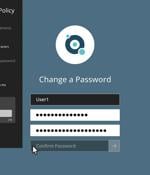Security News

The Evolving Healthcare Cybersecurity Landscape Healthcare organizations face unprecedented cybersecurity challenges in 2025. With operational technology (OT) environments increasingly targeted...

It involves a number close to three or six depending on the fiend Ransomware operators jack up their ransom demands by a factor of 2.8x if they detect a victim has cyber-insurance, a study...

Microsoft has released emergency Windows updates to address a known issue affecting local audit logon policies in Active Directory Group Policy. [...]

More light shed on what went down with Marko Elez, thanks to NY AG and co's lawsuit A now-former DOGE aide violated US Treasury policy by emailing an unencrypted database containing people's...

Ivanti has released security updates for Ivanti Connect Secure (ICS), Ivanti Policy Secure (IPS), and Ivanti Secure Access Client (ISAC) to address multiple vulnerabilities, including three...

Ivanti has released security updates to address multiple security flaws impacting Connect Secure (ICS), Policy Secure (IPS), and Cloud Services Application (CSA) that could be exploited to achieve...

Uncle Sam will 'no longer blindly dole out money,' State Dept says US Secretary of State Marco Rubio has frozen nearly all foreign aid cash for a full-on government review, including funds to...

Everyone agrees defense matters. How to do it is up for debate Feature The Trump administration came to office this week without a detailed information security policy, but analysis of cabinet...

Ivanti is warning that a critical security flaw impacting Ivanti Connect Secure, Policy Secure, and ZTA Gateways has come under active exploitation in the wild beginning mid-December 2024. The...

Password policies are a cornerstone of cybersecurity for any organization. A good password policy ensures every end user has a strong and unique password, significantly reducing the risk of...